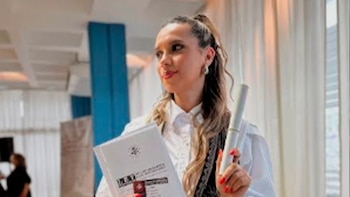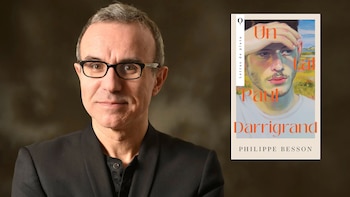
(ATR) Restrictions on athlete promotion during the Olympic Games have been eased in Germany following a ruling by a regulatory office.
The German Federal Cartel Office (FCO – Bundeskartellamt) ruled that the IOC and German Olympic Sports Confederation (DOSB) were subject to local laws, a clear win for German athletes. The decision takes aim at Rule 40 of the IOC Charter, which prevents athletes from allowing their likenesses to be used for advertising during the Olympic Games.
In a statement from an IOC spokesperson the organization said it "takes note of the commitment decision," and welcomed revised social media rules that "will be valid in Germany at least until the end of the Olympic Winter Games 2026".
"With its decision, the FCO recognized that there are legitimate reasons for restricting individual athletes’ advertising opportunities in order to ensure the ongoing organization of the Olympic Games," the IOC spokesperson added. "At the same time, any implementation of Rule 40 at the national level necessarily has to take all applicable laws and regulations as well as pertinent case law into account, in this instance, particular German case law."
Rule 40 says that "except as permitted by the IOC Executive Board, no competitor, coach, trainer or official who participates in the Olympic Games may allow his person, name, picture or sports performances to be used for advertising purposes during the Olympic Games."
The FCO ruling on Rule 40 will allow athletes greater latitude in using media during the Olympics. Posts will no longer require DOSB approval.
Athletes can post using the words "medal, gold, silver, bronze, winter or summer games," according to a report from Reuters.
"We ensure that the advertising opportunities of German athletes and their sponsors during the Olympic Games, which the DOSB and IOC significantly restricted in the past, are extended," Andreas Mundt, President of the FCO, said in a statement.
"While athletes are the key figures of Olympic Games, they cannot benefit directly from the IOC’s high advertising revenue generated with official Olympic sponsors. However, as the games mark the height of their sporting careers, self-marketing during the games plays a very important role."
DOSB PresidentAlfons Hörmann said in a statement that the "decision does justice to both sides" by allowing the extension of the personal rights of athletes, while protecting the integrity of Rule 40.
"Our athletes now have additional opportunities presenting themselves with their private sponsors at games times, especially regarding the further developed digital and social media channels," Hörmann said.
"By this Rule 40 will continue to serve as the essential basis to consequently prevent illegal advertising connected with Olympic Games."
Athletes have long tried to loosen Rule 40, arguing it deprives them of their biggest shot at capitalizing on the platform the Olympics provide. The IOC has countered that Rule 40 protects the exclusivity of the Olympics, which trickles down to the athletes.
"Rule 40 is the fundamental basis for the solidarity model of the Olympic Games," the IOC spokesperson added. "This model is in the interest of athletes from all around the world and the Olympic Movement. It ensures that the whole world can come together at the Games.
"It helps to offer athletes from all 206 National Olympic Committees (NOCs) an equal opportunity to train and qualify for the Olympic Games. Through this model, the Olympic Games can also continue to be a platform for a wide range of sports."
Written by Aaron Bauer
For general comments or questions, click here .
25 Years at # 1: Your best source for news about the Olympics is AroundTheRings.com , for subscribers only.
Últimas Noticias
Utah’s Olympic venues an integral part of the equation as Salt Lake City seeks a Winter Games encore
Utah Olympic Legacy Foundation chief of sport development Luke Bodensteiner says there is a “real urgency to make this happen in 2030”. He discusses the mission of the non-profit organization, the legacy from the 2002 Winter Games and future ambitions.

IOC president tells Olympic Movement “we will again have safe and secure Olympic Games” in Beijing
Thomas Bach, in an open letter on Friday, also thanked stakeholders for their “unprecedented” efforts to make Tokyo 2020 a success despite the pandemic.

Boxing’s place in the Olympics remains in peril as IOC still unhappy with the state of AIBA’s reform efforts
The IOC says issues concerning governance, finance, and refereeing and judging must be sorted out to its satisfaction. AIBA says it’s confident that will happen and the federation will be reinstated.

IOC president details Olympic community efforts to get Afghans out of danger after Taliban return to power
Thomas Bach says the Afghanistan NOC remains under IOC recognition, noting that the current leadership was democratically elected in 2019. But he says the IOC will be monitoring what happens in the future. The story had been revealed on August 31 in an article by Miguel Hernandez in Around the Rings

North Korea suspended by IOC for failing to participate in Tokyo though its athletes could still take part in Beijing 2022
Playbooks for Beijing 2022 will ”most likely” be released in October, according to IOC President Thomas Bach.




